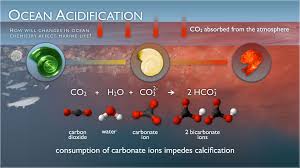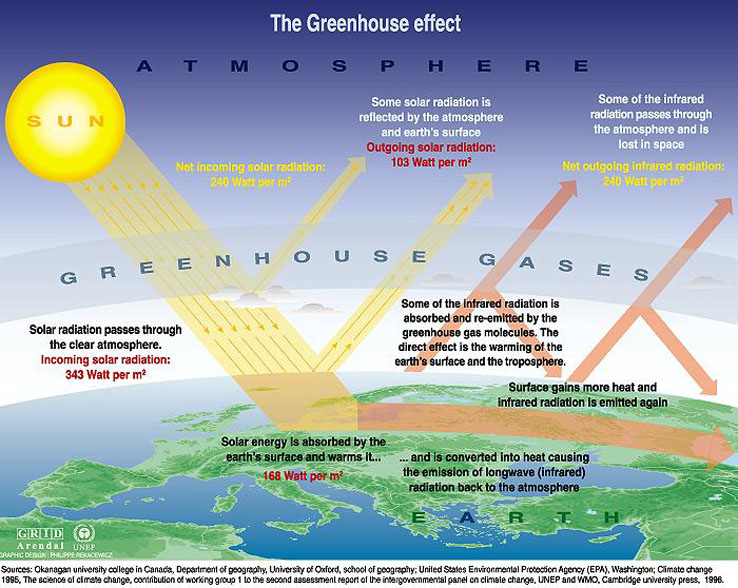Three sets of scientists in the same week have helped narrow the uncertainties about how the natural world will respond to extra carbon dioxide in the atmosphere caused by the burning of fossil fuels. Carbon locked in the frozen earth will escape gradually as the Arctic permafrost melts – but the scientists say the process could accelerate. As greenhouse gas …
Oceans Facing Carbon Rates Which Spurred Mass Die-Off 250 Million Years Ago
In case you weren’t already worried about the current and rapid acidification of the world’s oceans, a new report by leading scientists finds that this very phenomenon is to blame for the worst mass extinction event the planet earth has ever seen—approximately 252 million years ago. The findings, published this week in the journal Science by University of Edinburgh researchers, raise serious concerns about …
Greatest mass extinction driven by acidic oceans, study finds
Changes to the Earth’s oceans, caused by extreme volcanic activity, triggered the greatest extinction of all time, a study suggests. The event, which took place 252 million years ago, wiped out more than 90 per cent of marine species and more than two-thirds of the animals living on land. It happened when Earth’s oceans absorbed huge amounts of carbon dioxide …
Scientists predict gradual, prolonged permafrost greenhouse gas emissions, allowing us more time to adapt
A new scientific synthesis suggests a gradual, prolonged release of greenhouse gases from permafrost soils in Arctic and sub-Arctic regions, which may afford society more time to adapt to environmental changes, say scientists in an April 9 paper published in Nature. “Twenty years ago there was very little research about the possible rate of permafrost carbon release,” said co-author A. …
Saving Passengers Of The Good Ship ‘Titanic… Earth’
On 15 April 1912, the ‘Titanic’, the largest ship afloat at the time it entered service, sank in the North Atlantic Ocean after hitting an iceberg on its maiden voyage. The large and unnecessary death toll – more than 1,500 passengers and crew – was the result of many factors. Understanding the psychology that underpins these factors teaches us why …
Oxygen-depleted oceans had key role in mass extinction over 200M years ago
Changes in the biochemical balance of the ocean were a crucial factor in the end-Triassic mass extinction, during which half of all plant, animal and marine life on Earth perished, according to new research involving the University of Southampton. The study, published in the upcoming edition of Geology, reveals that a condition called ‘marine photic zone euxinia’ took place in …
Big Bang Beam: Large Hadron Collider Restarts After Two-Year Break
By Alan Boyle NBC News Researchers have begun circulating beams of protons in the Large Hadron Collider after a two-year shutdown for upgrades — and they expect to ramp up quickly to reach uncharted frontiers in particle physics. “Beam went smoothly through the whole machine. It’s fantastic to see it going so well after two years and such a major …
Japanese Scientists Successfully Transmit Electricity Through The Air
Scientists in Japan have successfully transmitted electric energy wirelessly through the air, proving that Nikola Tesla was onto something big. For years debates have raged about whether or not power could be transferred through the air, and while there have been many reports of this being achieved on a small scale, there has never been a major mainstream study into …
Deforestation is messing with our weather and our food
New research published in Nature Communications provides insight into how large-scale deforestation could impact global food production by triggering changes in local climate. In the study, researchers from the United States and China zero in on albedo (the amount of the sun’s radiation reflected from Earth’s surface) and evapotranspiration (the transport of water into the atmosphere from soil, vegetation, and …
Without Water We Die
How long can you go without water? You could probably survive a few weeks without water for cooking. If you stopped washing, the threat to your life might only come from people who can’t stand the smell. But most people won’t live for more than three days without water to drink. It makes sense: our bodies are about 65 percent water. According to …









